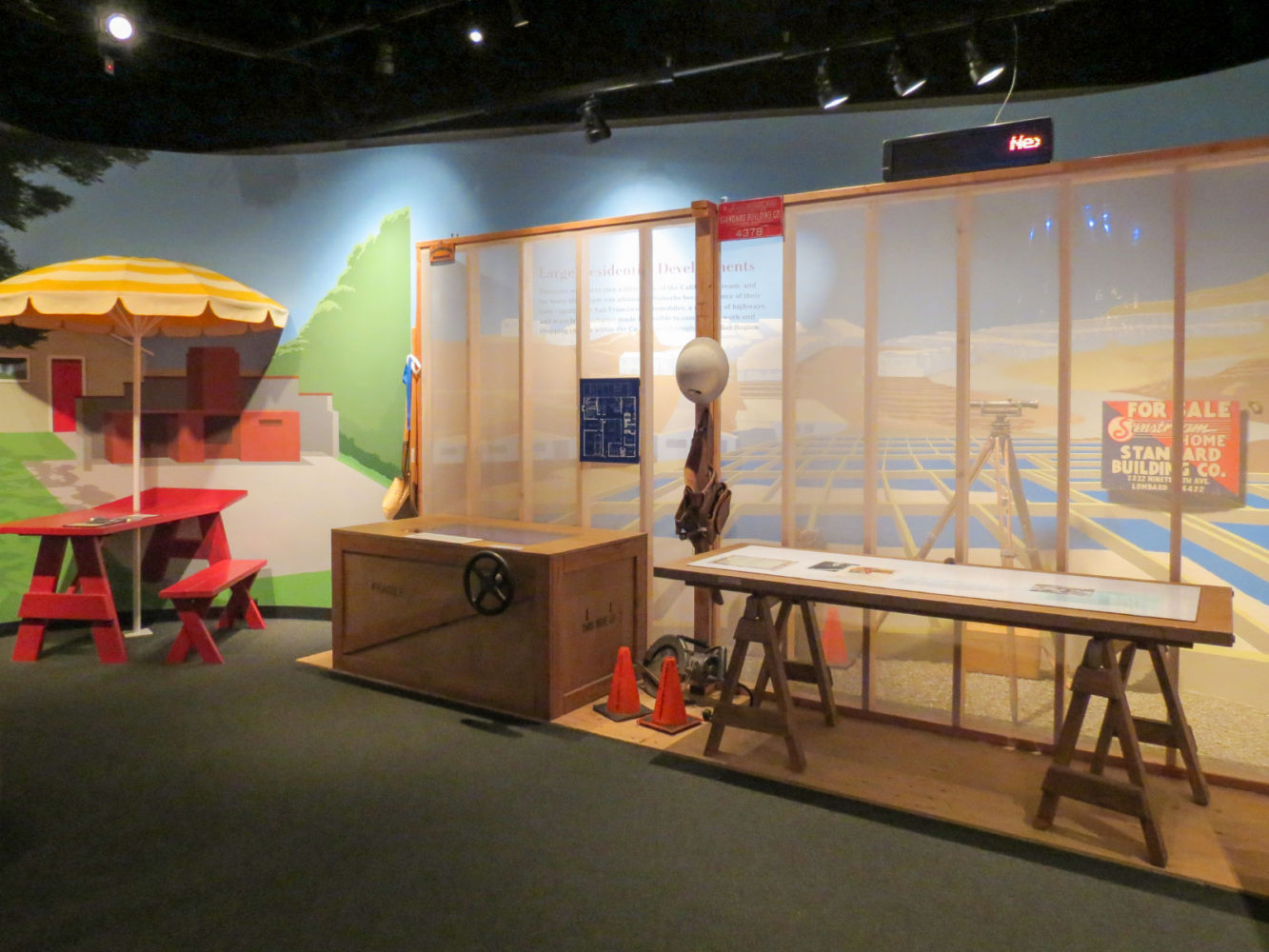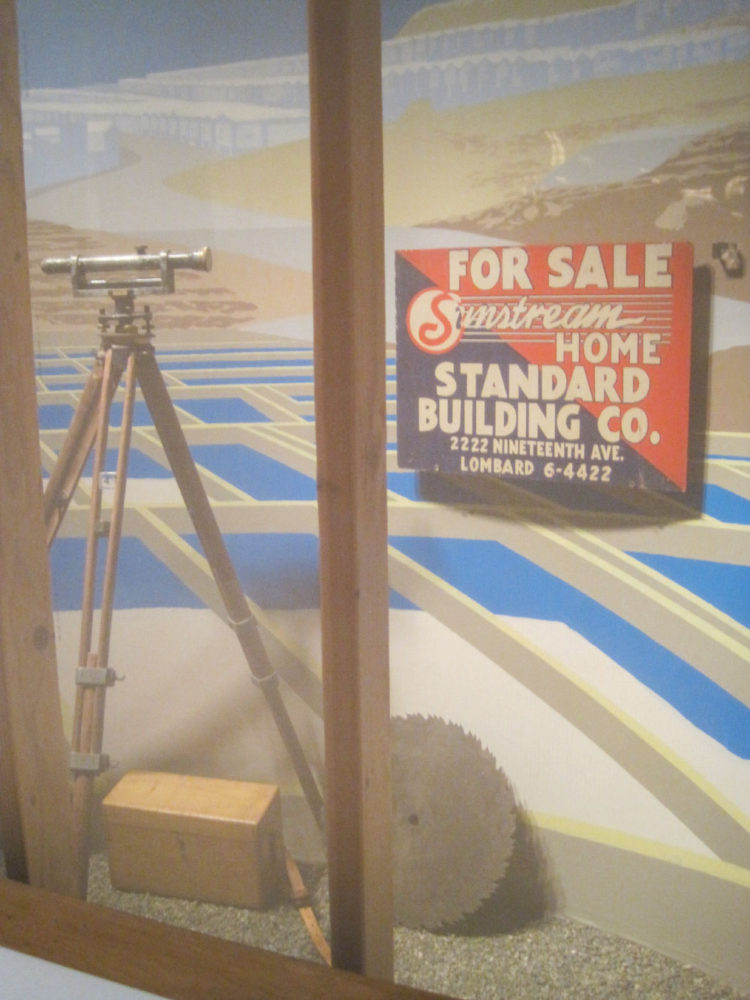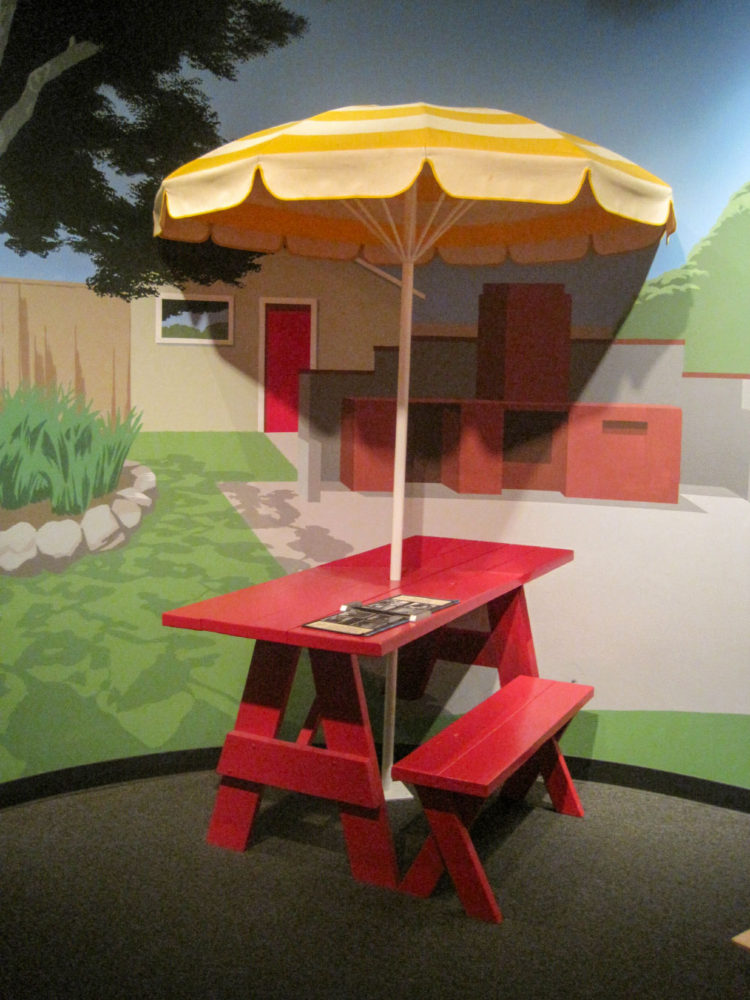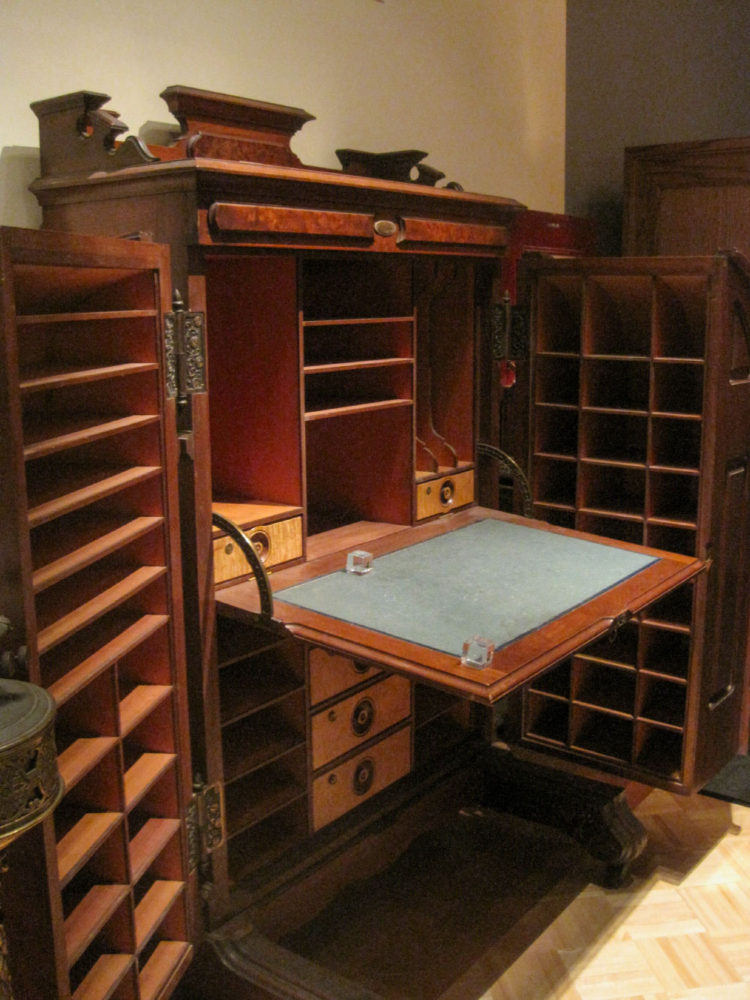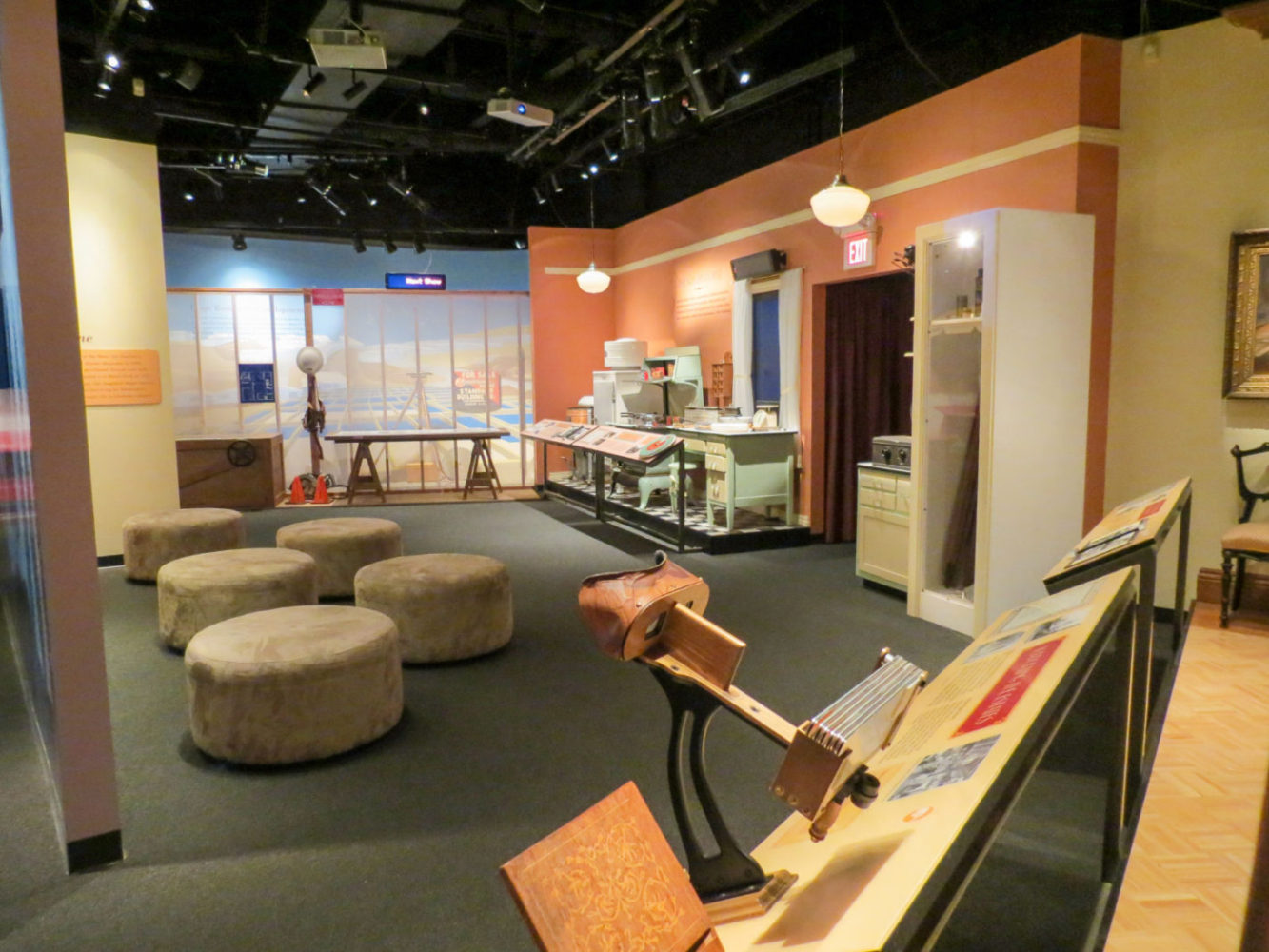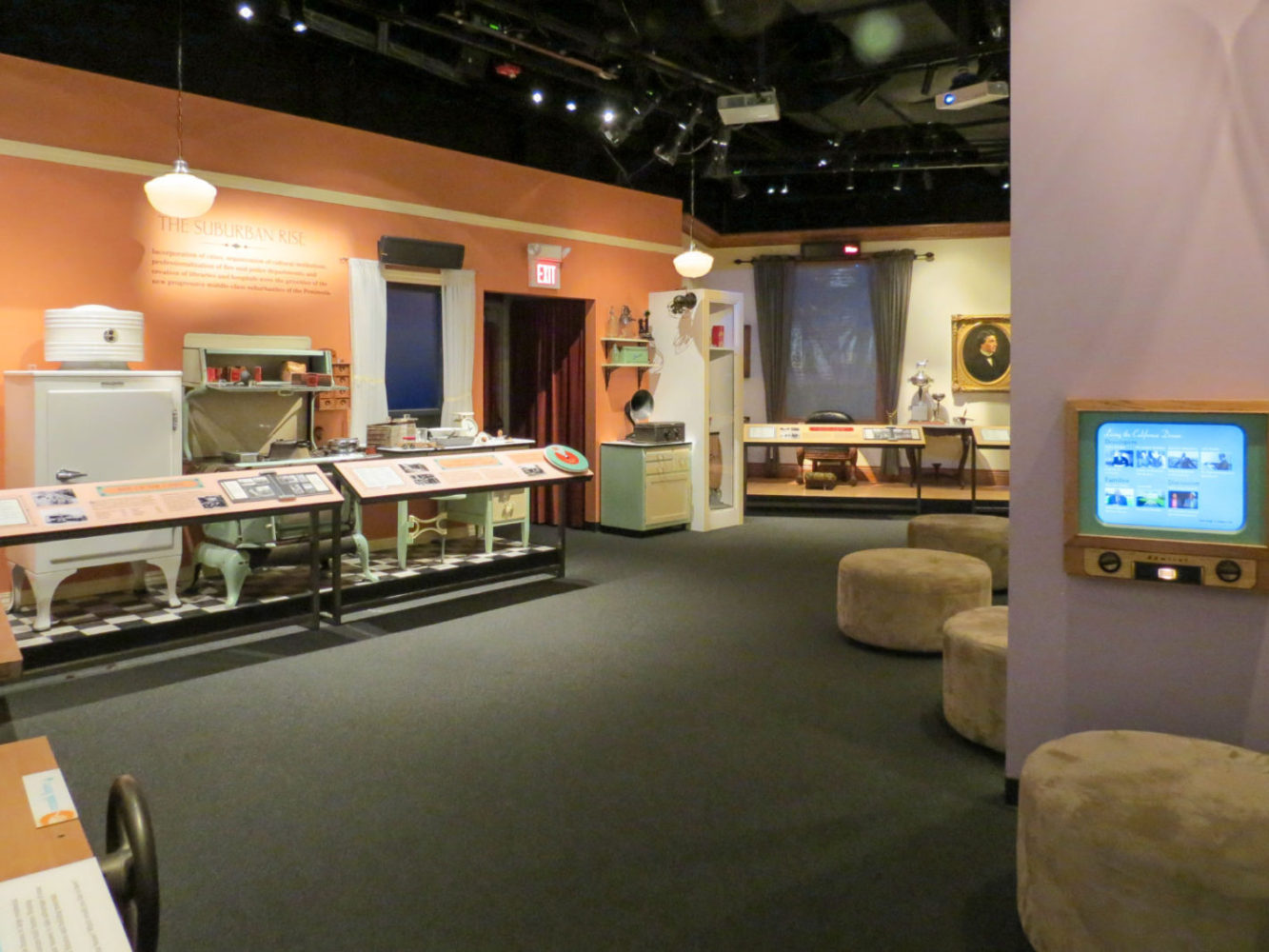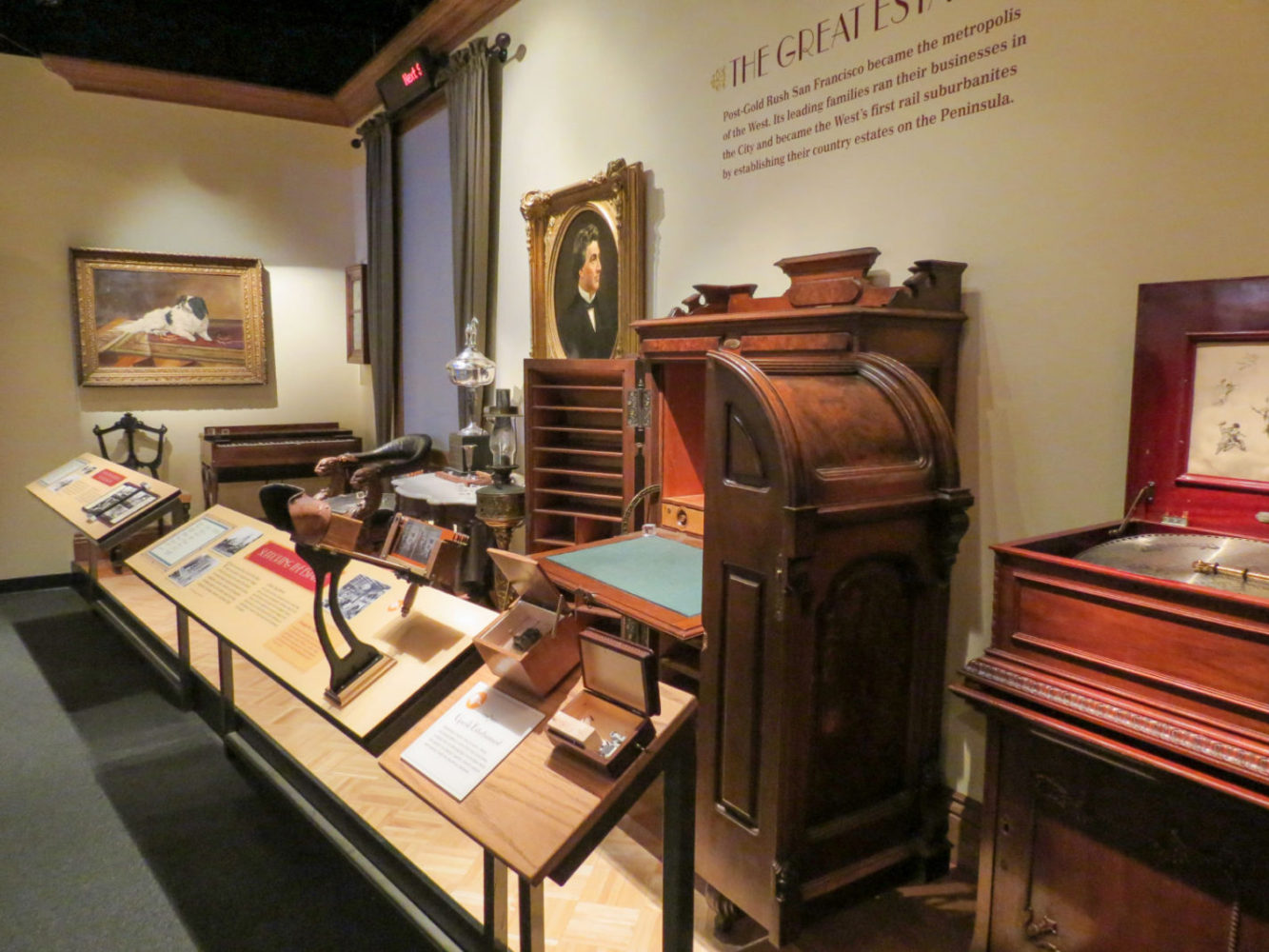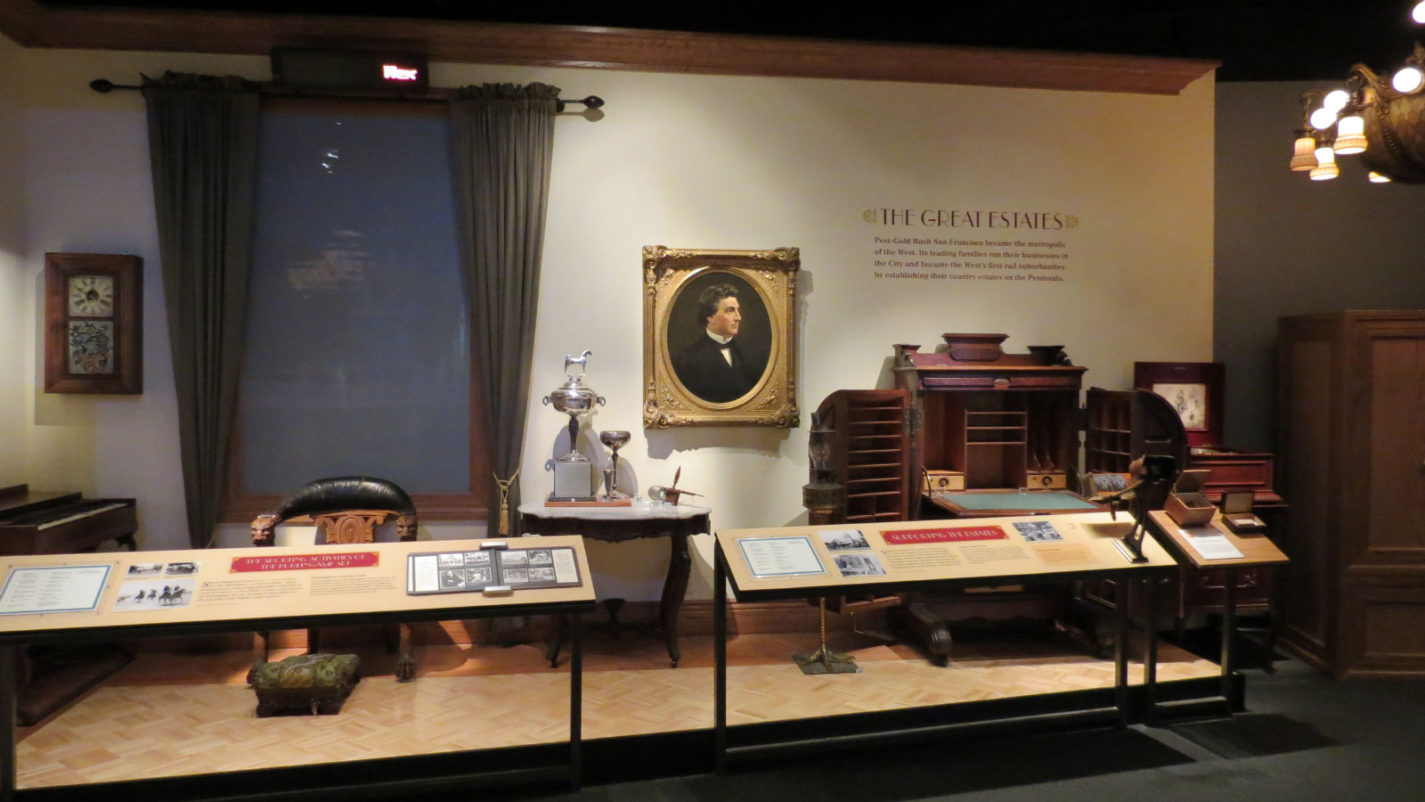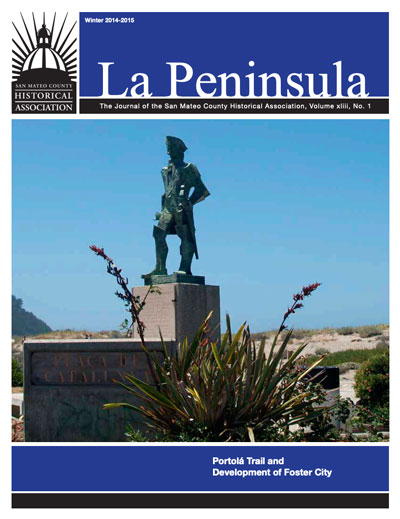Exhibit Details
Exhibits
Living the California Dream
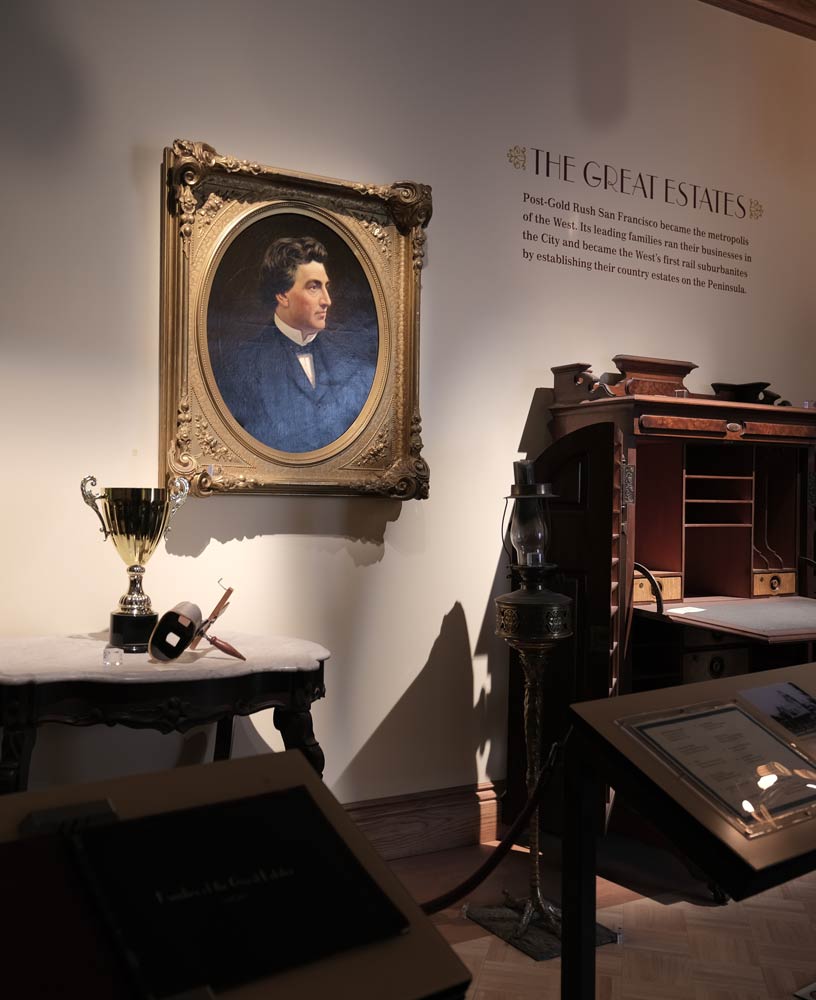
Discover how the California dream of a suburban lifestyle has evolved.
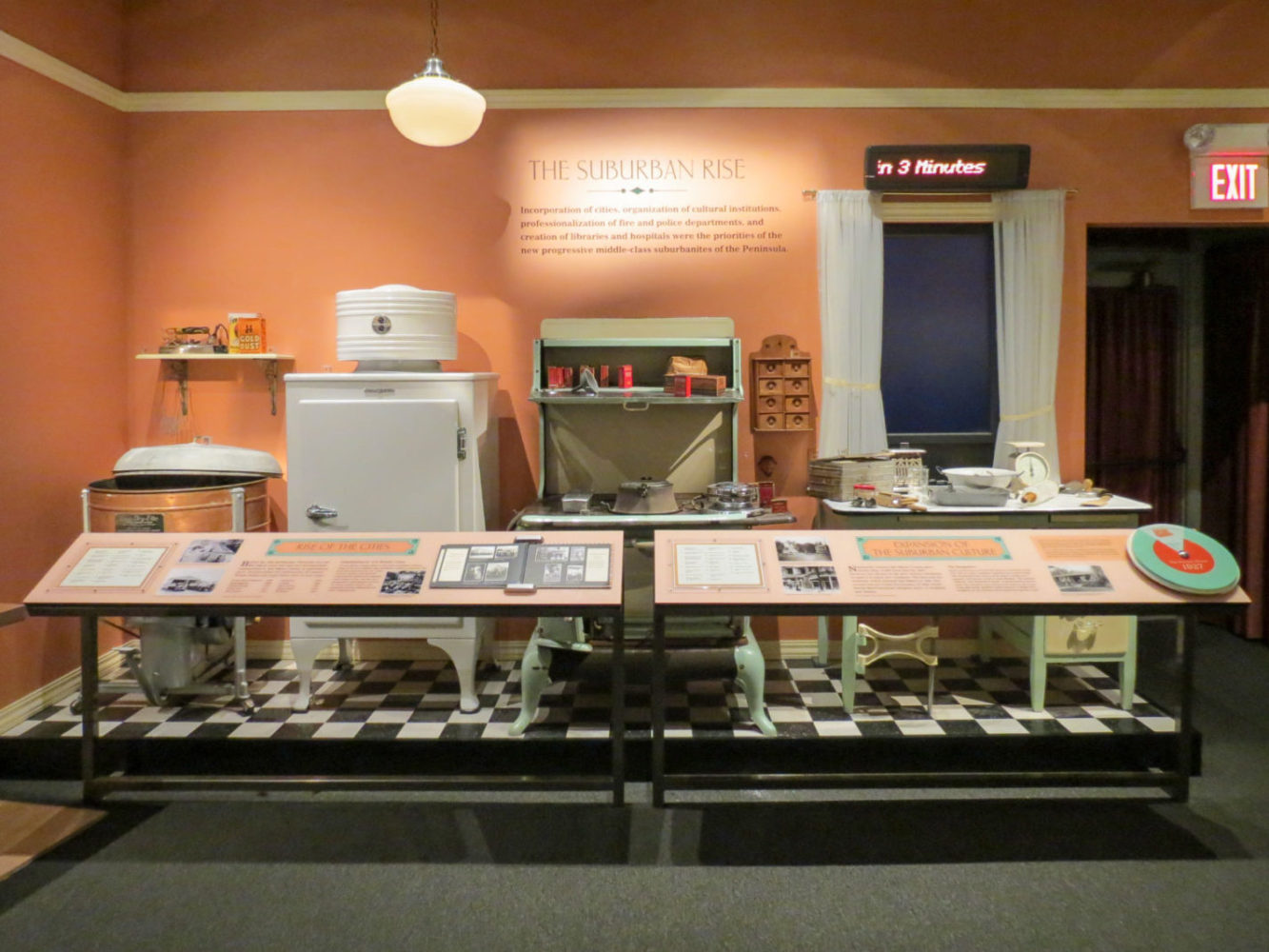
Explore the changes in suburban life over time.
S an Mateo County developed as one of the premier suburban areas of the West Coast. San Francisco millionaires of the 1800s became the West Coast’s first railroad suburbanites as they established Great Estates on the Peninsula. In the early 1900s, changes in transportation and the development of towns made healthy living on the Peninsula possible for the middle-class. In the post-World War II era, large residential developments made the California dream of a suburban home a reality for many.
Explore the Exhibit
The Great Estates
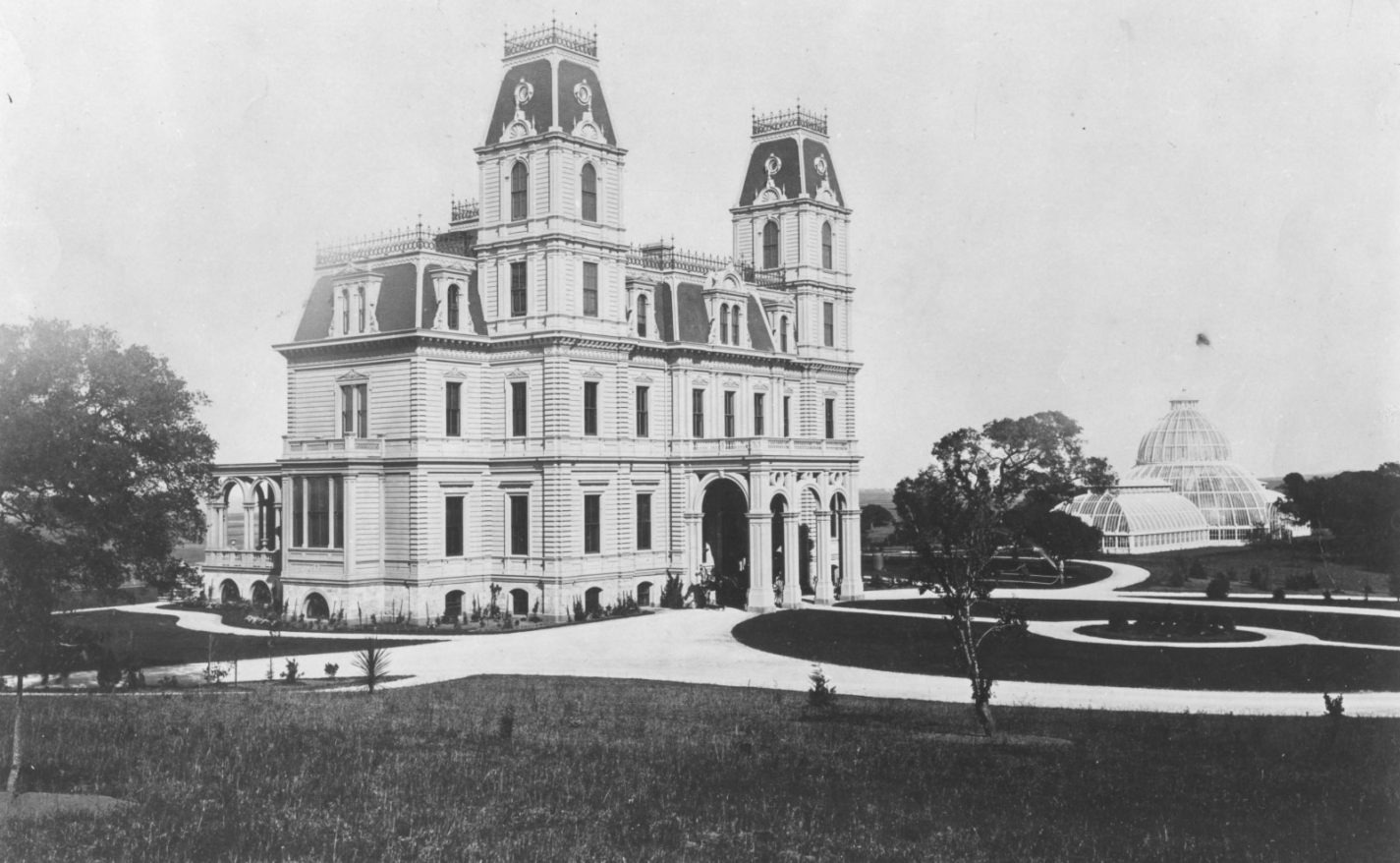
Millbrae home of Darius Ogden and Jane Mills, c. 1870s.
Post-Gold Rush San Francisco became the metropolis of the West. Its leading families ran their businesses there and became the first rail suburbanites by establishing their country estates on the Peninsula. The establishment of the Burlingame Country Club, the first such club in the West, offered members opportunities to participate in the sporting activities of European aristocracy.
The Suburban Rise
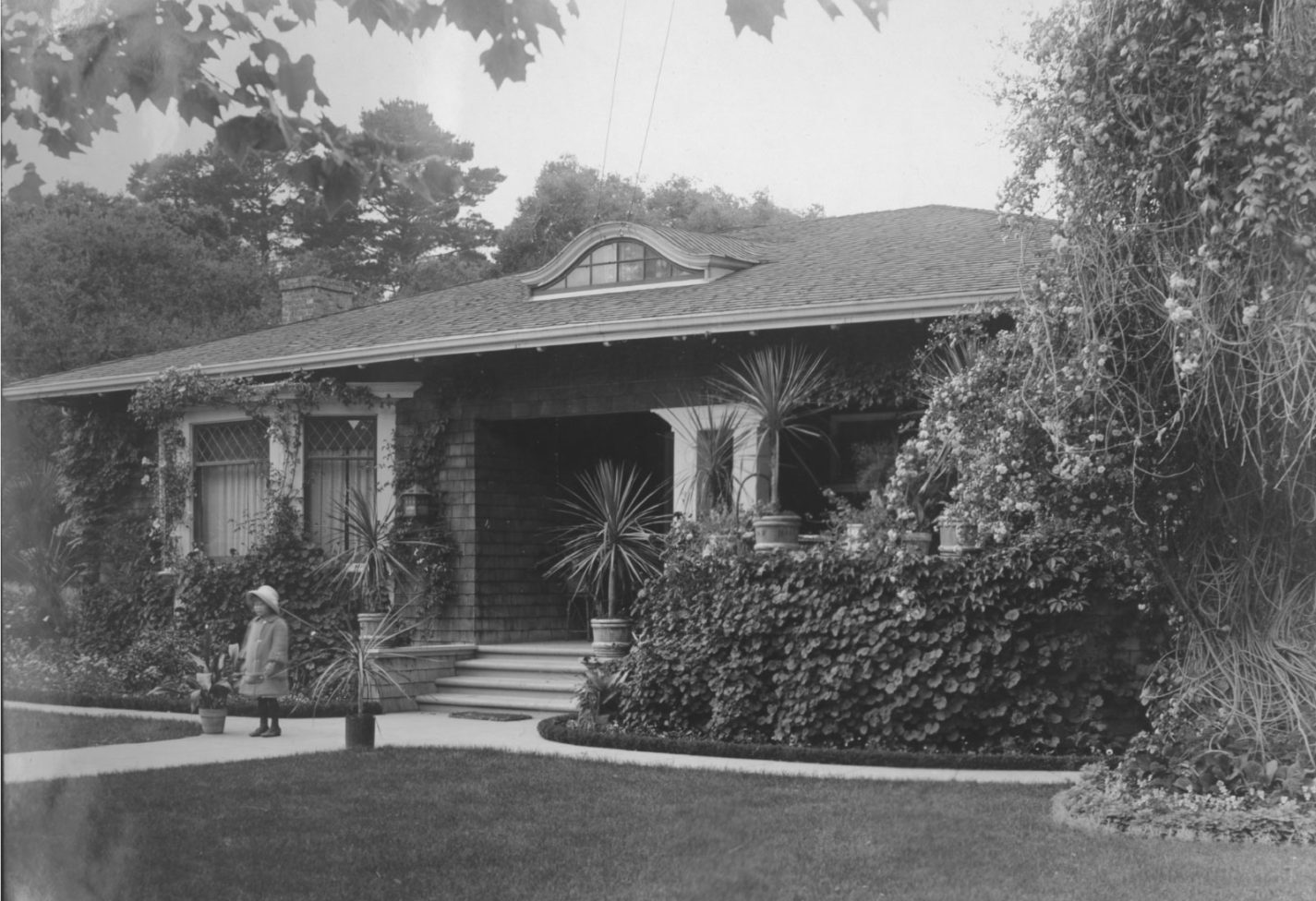
San Mateo bungalow, 1915. Photo by A.G.C. Hahn.
The population of the County grew after 1906. The San Francisco Earthquake encouraged many refugees to settle on the Peninsula. The new streetcar line helped them gain the opportunity to emulate the Great Estate owners. Modern mechanical conveniences allowed families more leisure time. The new Progressive suburbanites worked to create quality schools and cultural institutions for their families.
Large Residential Developments
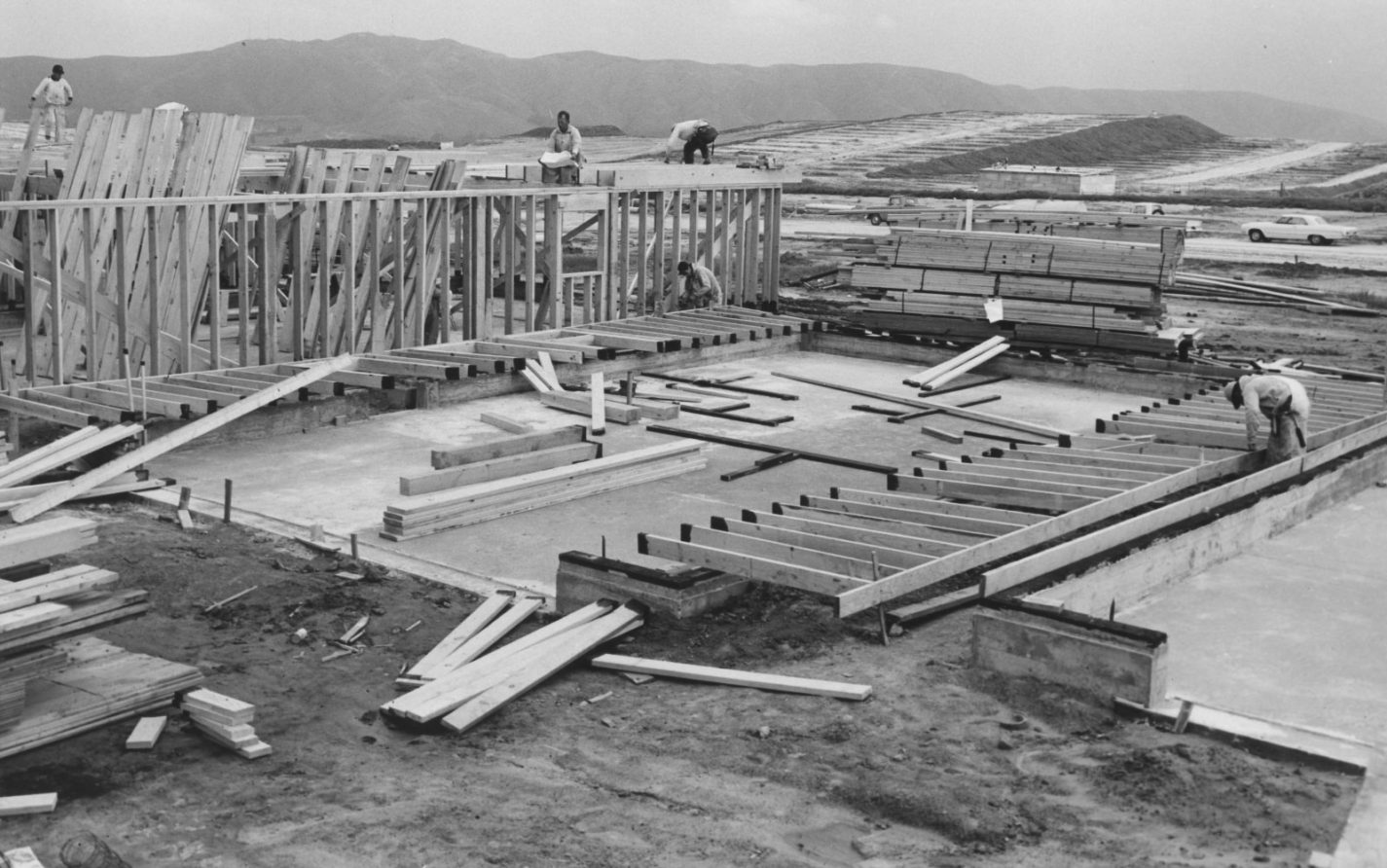
Building a house in Serramonte.
After World War II, developers and builders created massive new residential projects that transformed the Peninsula. Automobiles and mass transit made it possible to commute to work and travel for leisure activities throughout the Bay Area. Suburban development transformed San Mateo County, the Bay Region and America.
Sunset Magazine
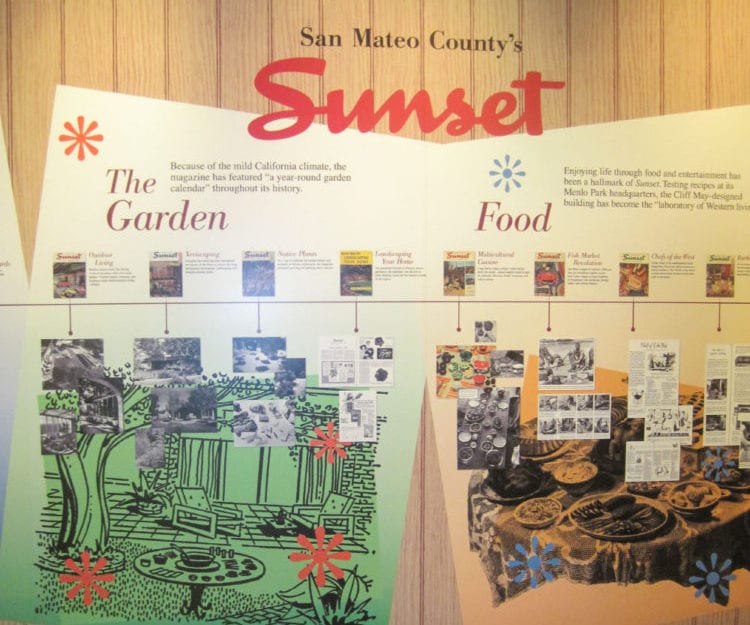
Sunset Magazine promoted the California dream of suburban life.
Under the guidance of Bill and Mel Lane, Sunset Magazine began to serve as a guide to better suburban living for Westerners. It was the first magazine to promote Western architecture. With its year-round garden and kitchen for testing recipes, its Menlo Park headquarters became the “laboratory of Western living.”
History Museum Quiz
Take our quiz and test your knowledge on Living the California Dream.

